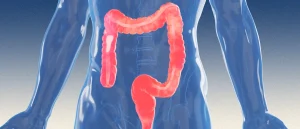Fisetin Benefits: Can The Supplement Extend Your Lifespan?
- By Joy Manning
- March 14, 2024
What if there was a natural compound that could clear old and damaged cells from your body before they cause creaky knees or memory lapses? If emerging animal research is any indication, the antioxidant fisetin does just that. And that’s not all. Other potential fisetin benefits are creating a big buzz in the world of wellness and supplements.
“Fisetin removes the so-called zombie cells from the system,” says Neil Paulvin, D.O., a functional medicine physician who specializes in longevity. It may have the power to fight cancer and keep your brain sharp as you age.
Ahead, find out what health professionals and recent research has to say about fisetin benefits.
About the Experts
Neil Paulvin, D.O., is a New York, NY-based doctor specializing in functional medicine, anti-aging, and longevity.
Paul D. Robbins, Ph.D., is the director of the Institute on the Biology of Aging and Metabolism (iBAM) at the University of Minnesota.
Colleen Wysocki-Woods, M.S., R.D.N., is a Capitola, California-based registered dietitian nutritionist with a Master’s degree in food science. She’s the owner of Zest Nutrition.
What is Fisetin?
Fisetin is a natural flavonoid, otherwise known as a polyphenol, or an antioxidant. You’re probably already getting some of it because fisetin is found in many common fruits and vegetables, including strawberries, apples, onions, and cucumbers.
Fisetin researcher Paul D. Robbins, Ph.D., explains that fisetin falls under a class of chemicals known as senolytics (1). These drugs help remove (or kill) old cells in the body that no longer work properly. That’s a very good thing because these aging cells, called senescent cells or zombie cells, can cause inflammation and age-related diseases such as cancer (2). But there are many other possible benefits of fisetin that researchers like Robbins have just begun to investigate.
4 Potential Benefits of Fisetin
The research on fisetin is still in its infancy, so the reported benefits of the supplement are still being researched. But if what’s been seen in animal studies and petri dishes is any indication, fisetin could become an anti-aging supplement superstar for the body.
Here’s what research suggests the top fisetin benefits might be:
May enhance cognitive function
Brain diseases, including Alzheimer’s, are some of the most feared age-related conditions. Fisetin may offer some protection. A 2022 review of the research (primarily conducted on mice) showed that fisetin may have neuroprotective properties, potentially reducing the risk of age-related cognitive decline and neurodegenerative diseases such as Alzheimer’s (3). The study authors’ note this is likely due to fisetin’s anti-inflammatory effects.
Other research suggests that fisetin may play a role in supporting cognitive health. In a 2021 study, published in the British Journal of Nutrition, participants were given freeze-dried strawberries that contained about 50 milligrams (mg) of fisetin (4). After three months, they improved in some cognition aspects, including increased word recognition in the California Verbal Learning test.
May support cardiovascular health
A 2020 study published in Scientific Reports found that fisetin helped prevent heart cell death in zebrafish cells, suggesting it may benefit overall heart health (5). Fisetin could also help prevent changes that lead to the thickening of the wall of the heart—a clear indication of cardiovascular disease—and heart failure, according to research conducted on animals (6).
May help to prevent cancer
Fisetin may help fight a number of cancers, including lung, breast, and gastric cancers, according to a 2023 review published in the European Journal of Medical Research (7). How? Fisetin can tame inflammation, reduce oxidative stress, and hinder tumor development and metastasis.
May benefit skin health
If you want to keep looking youthful into your later years, fisetin may be able to help out cosmetically as well. Fisetin’s antioxidant properties might help keep your skin youthful and healthy. It appears to benefit skin health by combating oxidative stress and protecting against UV-induced damage—at least, that’s what research on mice suggests (8).
All of these studies are encouraging, says Paulvin, but it’s important to note that they are all either small, preliminary, or their subjects weren’t human. “I recommend fisetin to my patients, and I take it, but it’s with the disclaimer that the studies aren’t fully there yet,” he says.
Are There Any Side Effects of Fisetin?
While fisetin is generally considered safe, it can cause mild side effects. “Some people get an upset stomach,” Paulvin says.
Robbins has no safety concerns and hasn’t heard about side effects of fisetin in people or in the lab. In yet-to-be-published research, his lab administered daily high doses of fisetin to mice specifically to establish the compound’s safety, and no adverse effects were reported.
It’s also important to know that a fisetin supplement isn’t something you take every day. Both Paulvin and Robbins take it intermittently, only a few days a month. “Once you get rid of those senescent cells, it takes two to four weeks for them to come back, and there’s no point taking a supplement to clear them until that happens,” says Robbins.
What Foods Are Naturally Rich in Fisetin?
Paulvin and Robbins doubt that you get enough fisetin from food sources to have a meaningful impact on your senescent cells. But fruits and vegetables do contain varying amounts. “Strawberries appear to have the highest concentration,” says Colleen Wysocki-Woods, R.D.N. Here are the other foods that are good sources of fisetin, according to Wysocki-Woods:
- Apples
- Persimmons
- Lotis root
- Onions
- Grapes
- Kiwis
- Cucumbers
“While we wait for more conclusive studies about the effects of fisetin, you can still benefit from eating these fruits and vegetables,” she says, adding that eating plenty of these plant-based foods is important for your overall health for a variety of reasons.
For instance, all of these foods are rich in fiber, which can help you manage both your cholesterol and blood sugar levels, says Wysocki-Woods.
Best Fisetin Supplements to Take
Paulvin doesn’t recommend strolling into a health food store and picking up a random fisetin supplement off the shelf, as some can have artificial fillers that you don’t want or need. Not to mention that some of these supplements can contain gluten, according to Paulvin. That’s important to know for anyone who has celiac disease or is gluten-sensitive.
Consider asking your doctor if you can order fisetin or other supplements from a trusted source through their office.
Two supplements Paulvin recommends include:
Frequently Asked Questions
1. Can fisetin help with anti-aging and longevity?
Fisetin has the potential to extend lifespan, at least in mice, according to research co-authored by Robbins (9).
“We published a paper in Science that showed that, at least in mouse models infected with the [SARS-CoV-2] virus, fisetin improved or reduced mortality (10). We all started taking [the supplement].” But he cautions: “Mice are not people.”
Robbins expects this question will be answered in the next five years, thanks to ongoing research.
2. Who Should Not Take Fisetin?
If you’re younger than 50, fisetin supplements may not be worth the cash, according to Robbins. “People in their 30s and 40s aren’t old enough to have accumulated a lot of senescent cells, and if there are no senescent cells to clear, there’s no reason to take it.”
Fisetin may interfere with medications, including anti-cancer drugs, so talk to your doctor before starting fisetin supplementation (11).
References
1. Christina D. Camell et al. (2021). Senolytics reduce coronavirus-related mortality in old mice.
2. Shenghui He, et al. (2018). Senescence in Health and Disease.
3. Syed Shams ul Hassan et al. (2022). The neuroprotective effects of fisetin, a natural flavonoid in neurodegenerative diseases: Focus on the role of oxidative stress.
4. Marshall G. Miller et al. (2021). Dietary strawberry improves cognition in a randomised, double-blind, placebo-controlled trial in older adults.
5. Sophie Rodius et al. (2020). Fisetin protects against cardiac cell death through reduction of ROS production and caspases activity.
6. Bin Dong et al. (2018). Fisetin inhibits cardiac hypertrophy by suppressing oxidative stress.
7. Chenhui Zhou et al. (2023). Biological effects and mechanisms of fisetin in cancer: a promising anti-cancer agent.
8. Anna Domaszewska-Szostek et al. (2021). Flavonoids in Skin Senescence Prevention and Treatment.
9. Matthew J Yousefzadeh et al. (2018). Fisetin is a senotherapeutic that extends health and lifespan.
10. Christina D. Camell, et al. (2021). Senolytics reduce coronavirus-related mortality in old mice.
11. Sergei Romashkan et al. (2021). National Institute on Aging Workshop: Repurposing Drugs or Dietary Supplements for Their Senolytic or Senomorphic Effects: Considerations for Clinical Trials.












